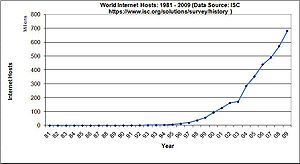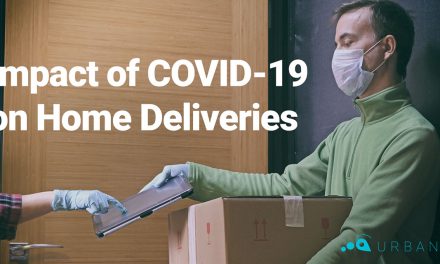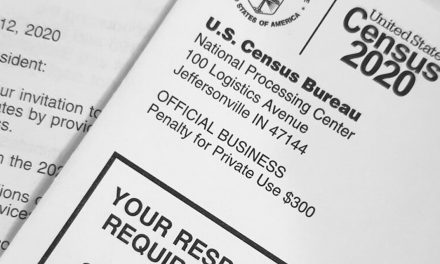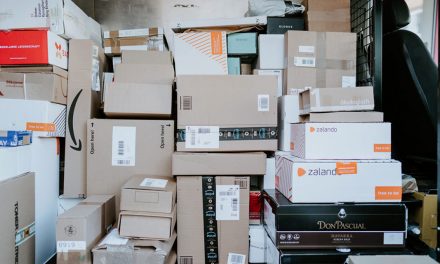
From POD to POV?
The Internet was some 40-years-old last week and this got me thinking about how the postal and logistics industry had changed over that time and how it might change in the coming years. The Internet had a slow start in the UK, and although it was used extensively in the academic environment in the early days, it wasn’t really until Tim Berners-Lee ‘invented’ the World Wide Web in the late 1980’s, and its subsequent take up by business and consumers around the world in the mid 1990’s, that things really started to change.
I remember being actively involved in promoting the Internet in Royal Mail – being co-author of a paper entitled Post Office 2000 which painted a picture of a world not dissimilar to what we have today – although as with all predictions our timescales were over optimistic and the impact was under estimated. When the paper was taken as a board paper I remember the Marketing Director at the time announcing that he was going to stop the Internet coming into the UK – a Canute approach if ever I heard one. Anyway that is all history and the Internet is now an integral part of all our lives – at work, at rest and at play.

In the postal industry in the early days it was all about converting paper based systems into replica electronic systems without much business process reengineering behind it. This approach was supposed to take paper out of the system and speed things up – in hindsight this never seemed to happen and a cynical view today would suggest that we probably have just as much paper and some systems are actually slower.
The second phase of ‘E’ is typically transforming the business process and then the third phase is to reengineer the way things are done. Take car insurance as an example; initially we filled in the paper form online and submitted it for someone to do the checks and give a quote. The industry changed in that the systems themselves could generate quotes and the information we had to give changed, and if we look at where we are today with comparison websites and pay per use policies, it is a completely different industry from where it was back in the early 1990’s.
I had a delivery this week from Royal Mail of some computer bits I had ordered over the Internet and was frustrated that I had to be actually in the house to receive the goods and realised that the Proof of Delivery ‘transaction’ had in fact only really hit phase 1 of the transformation process. I was actually signing a replica of the old paper based form on a PDA. Now I know that for Royal Mail just moving to a PDA has been a massive change, however the opportunity to change the ‘process’ must be there.
Global Position Systems (GPS) is set to become a de-facto standard in most mobile phones over the next 3 – 5 years, in fact it is estimated that 20% of the phones in the UK today have an ability to use locational information. So could we see this information used to ‘prove’ that the post person has visited my home and I will accept this as a Proof of Visit (POV) rather than having to be there and get a Proof of Delivery (POD). Although this would not prove that I actually received the item it would prove that the delivery agent visited my property and give a time and date – it wouldn’t then be too difficult to generate an SMS message automatically to tell me that this had happened.
estimated that 20% of the phones in the UK today have an ability to use locational information. So could we see this information used to ‘prove’ that the post person has visited my home and I will accept this as a Proof of Visit (POV) rather than having to be there and get a Proof of Delivery (POD). Although this would not prove that I actually received the item it would prove that the delivery agent visited my property and give a time and date – it wouldn’t then be too difficult to generate an SMS message automatically to tell me that this had happened.
Would this replace the current proof of delivery system, no but for many items it would suffice and could be sit below full blown POD services. Implementation of this sort of hybrid assurance service could be the start of phase 2 – the reengineering of the service to start to take full advantage of the technologies and services that the Internet has brought over the last 40 years.













Hi Howard,
A very interesting thought. I think you would be interested in an article I have just written for Fulfilment & ELogistics addressing this very problem:
http://www.elogmag.com/magazine/53/Unattended_electroni.shtml
I would really value your thoughts?
Andrew
Hi Andrew
Great article and I agree with the thought that the POD signature is pretty worthless in this day and age. The idea of the dropbox has been around for a few years now – I remember being involved in some trials with Royal Mail in the late 1990s and although there was some interest it was the business model that was missing at the time as we coudn’t work out how to make any money out of it.
In the US there are a number of trials going on, including refrigerated domestic drop boxes built into new houses for food deliveries!
The problem I guess is that for most people it isn’t really a problem at the moment and therefore they don’t see the need to pay for such a service – happy to be proved wrong on this. The benefits comes to the delivery agent as they get away from wasted visits – which can add up to £9 onto the cost of delivery if more than two visits are attempted if my memory serves me.
It would be interesting to understand you thoughts on ‘who pays and why’?
Howard